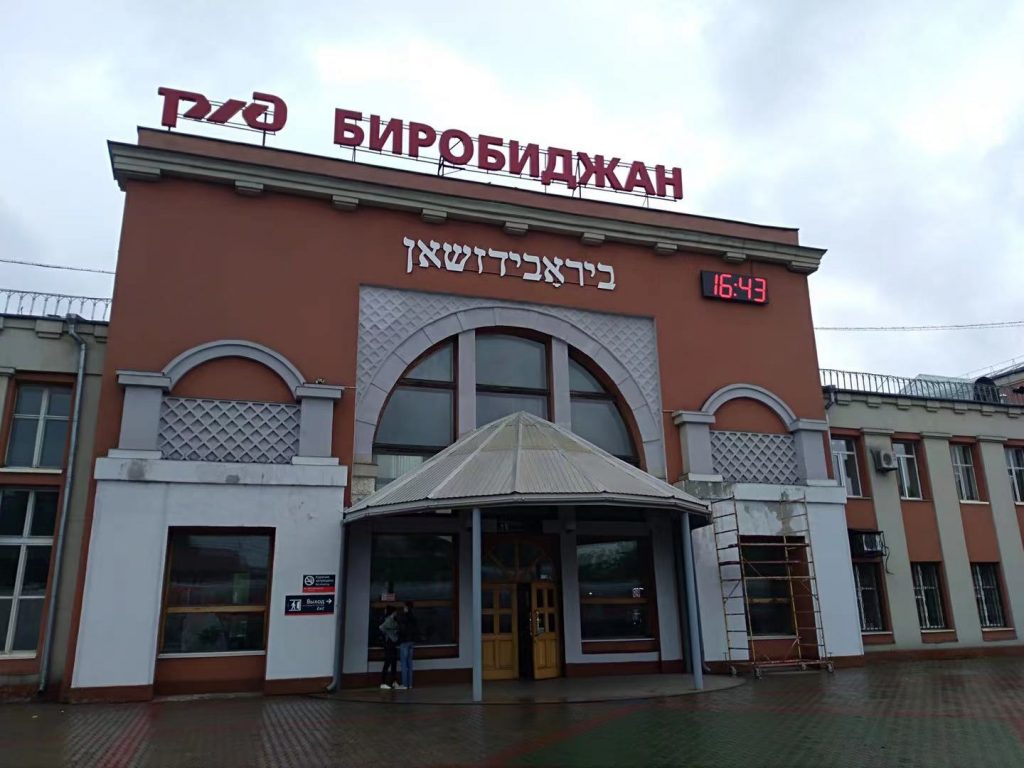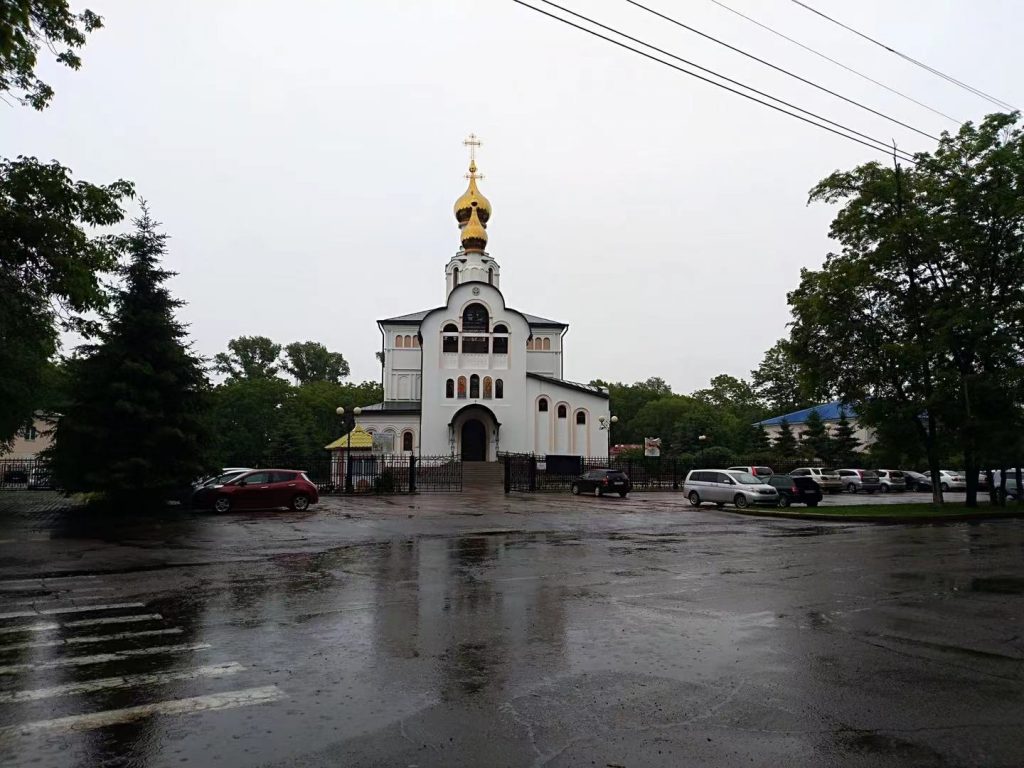Is there a holy land in Russia? From the late 19th century leading up to World War II, the question (or problem or solution) of the Jewish population grew. As some were looking to reinstate the Holy Land within the old borders of Israel, others looked at nations like Argentina. From 1791 to 1917 Russia had had its own borders where the Jewish community could live (called the Pale of settlement) but after the bolsheviks took control of the nation the Soviets tried to help (or move) the Jewish people. They eventually found a place, some 8000 km away from Jerusalem, far east in a town called Birobidzhan.
There are many things I have always found fascinating with Russia, and Siberia is one. Coming from a part of the world where many of the cities are hundreds of years old, Siberia has places that have barely reach 100 years. It is like a forgotten place where many towns were built by the Soviets for a specific function. In 1931 the Swiss architect Hannes Meyer planned and got the city of Birobidzhan built. 6 years later it became an official town. This little place, close to the northeastern tip of the Chinese border were to become known as the Birobidzhan Experiment, and under the slogan “To the Jewish Homeland!” the Soviets pushed hard to get the Jewish people to move there. A lot of people did as well, not only from the Soviets but also from Poland, Romania, Germany, and even as far away as Argentina and the USA.
Surprisingly enough the Soviet Union had some ulterior motives for helping to find, and move the Jewish populations to this new Holy Land. One such motive was to move the Jewish population from Ukraine, Belarus, and Crimea due to the fact that the citizens of those countries weren’t in favor of the Jews, hence it worked as a solution to please those people. Birobidzhan also worked as a buffer zone between the Soviets and China and Japan so that these countries wouldn’t want to expand their own regions up to that area. But regardless of any ulterior motives but the Soviets many Jewish people moved to Birobidzhan and form a sort of free zone which helped them during World War II.
A DAY IN BIROBIDZHAN – THE HOLY LAND IN RUSSIA

Planning our Transsiberian trip we had some must-stops and some other stops that were interesting in their own way. Birobidzhan was one of those stops. Not that any of us are religious in any way but to have a Jewish city in the far east of Russia was strange enough to be worthy of a visit.
Taking the train from Ulan Ude was the longest part of the trip, and we were in a four-bed compartment so were sharing the majority of the trip with complete strangers. After more than 2 days (including a couple of leg stretchers) on the train with nothing to do than reading, drink, and play cards we finally arrived at this little odd place, in bad weather. It was pouring down.
Birobidzhan is an interesting mix between the Jewish culture, symbols and language, and Russian culture and architecture. Since it was pouring down, and we had spent 2 days on a train, that was unfortunately not on our agenda for the moment. We had to find the hotel, which we had longed to get to since we had booked a hotel with a pool, and considering the recently mentioned state we were in we longed for that pool. So after a short walking tour, we arrived at the hotel, went to check, and were told in very broken English that it was no pool. It was under reconstruction. We had no words. But got the keys and went up in this empty hotel, seemingly the only guests, and the hallways had an eerie feeling to them. But we were not alone for long. Soon a bus with a Chinese group had managed to find its way to Birobidzhan and the hotel was soon filled with Chinese people. The eerie feeling intensified when a lone Chinese man stood at the end of a badly lit hallway and just screamed random nonsense.
We left the hotel to see the city and to get something to eat. Walking around the little square of the town we found “the best pizza in Birobidzhan”, or it might have been the only pizzeria in town, and it had its small-town charm to it. But the hype didn’t match the quality and, although filled, we were not so satisfied with the food.
BIROBIDZHAN – A RUSSIAN FEEL
I didn’t know what I was expecting of this place, but a part of me was anticipating almost a mini Jerusalem in that it was to showcase the Jewish culture and traditions. But it wasn’t much of it. Many places had Hebrew signs and it was a synagogue and some monuments with a menora and such, but besides that, it was your everyday Russian city. Birobidzhan is a very nice, quaint little city and on a sunny day, it is worth the visit. We were tired and it had rain for a long time when we arrived so the experience wasn’t that good. This was the first stop in the more eastern parts of Russia and it was a strange setting when you had a lot of things written in Hebrew.

It was when we came back to the hotel restaurant for breakfast the morning after that the Russian vibe started to make a strong appearance again. It is something when you go to a restaurant and it is more waiters than guests. The restaurant was huge but the buffet was relatively small. We were there early so we didn’t miss the train but also to avoid the whole Chinese group that was due to arrive at any moment. So it was the two of us and maybe 5-6 waiters that just stood there waiting for an empty plate to emerge on the table. Even after spending a few weeks in Russia and living on Svalbard where I often went to Barentsburg, I am never sure if I like Russian breakfast. But we got food and left a lobby packed with the Chinese tour group for our last leg of the train journey, leaving the small Jewish city in vast eastern Russia.





